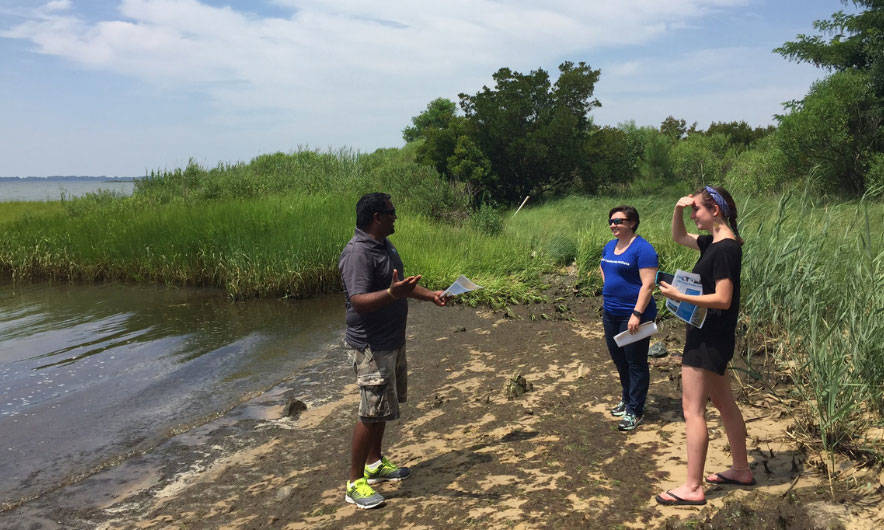
AAAS’ New Climate-Change Advocacy Strategy: Think Local
Stymied by a White House averse to addressing manmade climate change, the science group has launched a program to help members engage at the state and municipal level.
After years of spreading the word on climate-change science on a national level, the American Association for the Advancement of Science is starting to think small.
That is, it’s looking to encourage its members to engage in their own communities and communicate with leaders on the issue. The new initiative, announced last week, is designed to prepare AAAS members to become “effective advocates for the inclusion of scientific evidence in public policy discussions at state and local levels in the United States,” according to a release.
We recognized a growing desire amongst scientists to be more engaged.
AAAS has done this kind of local policy-related outreach with members for years, said Joanne Carney, director of government relations at the association. But, in the past year, it has looked to climate change as a policy focus for that work. The local focus is designed partly to address the ways climate change is affecting individual communities, and partly in response to the White House’s demonstrated disinterest in addressing the issue.
“We recognized a growing desire amongst scientists to be more engaged, and they’re interested in being engaged at a local level,” Carney said. “At the same time, we also saw that efforts at a national level to address climate change have for many years been extremely difficult to progress, and the current administration is taking steps to backpedal certain efforts with respect to a national approach to addressing climate change. In parallel for that, we were seeing individual localities and individual states having to address adapting to climate change, whether it’s drought or flooding or sea levels rising.”
To handle all that, AAAS has hired Dan Barry, a veteran of environmental policy within nonprofits and government, to handle the initiative within the organization’s government relations department. Carney said the goal is to bring new expertise, while also making use of programs AAAS already has in place, such as its Leshner Leadership Institute, which trains scientists in public engagement.
“We obviously want someone who has the unique expertise to bring AAAS more into the local and state level, so it is staffing up in order to bring that level of expertise to the organization,” she said. “But at the same time, we’re hoping to create and leverage existing programs and activities within the existing structure of AAAS.”
The scope and nature of that participation in the new initiative is still being determined, Carney said, and much of it will depend on what members say they need.
“First we want to reach out to our members to understand the resources that they would like,” she said. “Whether it’s training in communications, in writing, in participating in meetings, and providing them with the tools that they require. Then we would be identifying opportunities in different states and localities where we could hopefully organize forums to bring scientists and decision-makers together to address issues that are relevant to their community.”
AAAS members, including Leshner Leadership Fellow Melissa Kenney (center), are increasingly focused on local advocacy. (Handout photo)






Comments